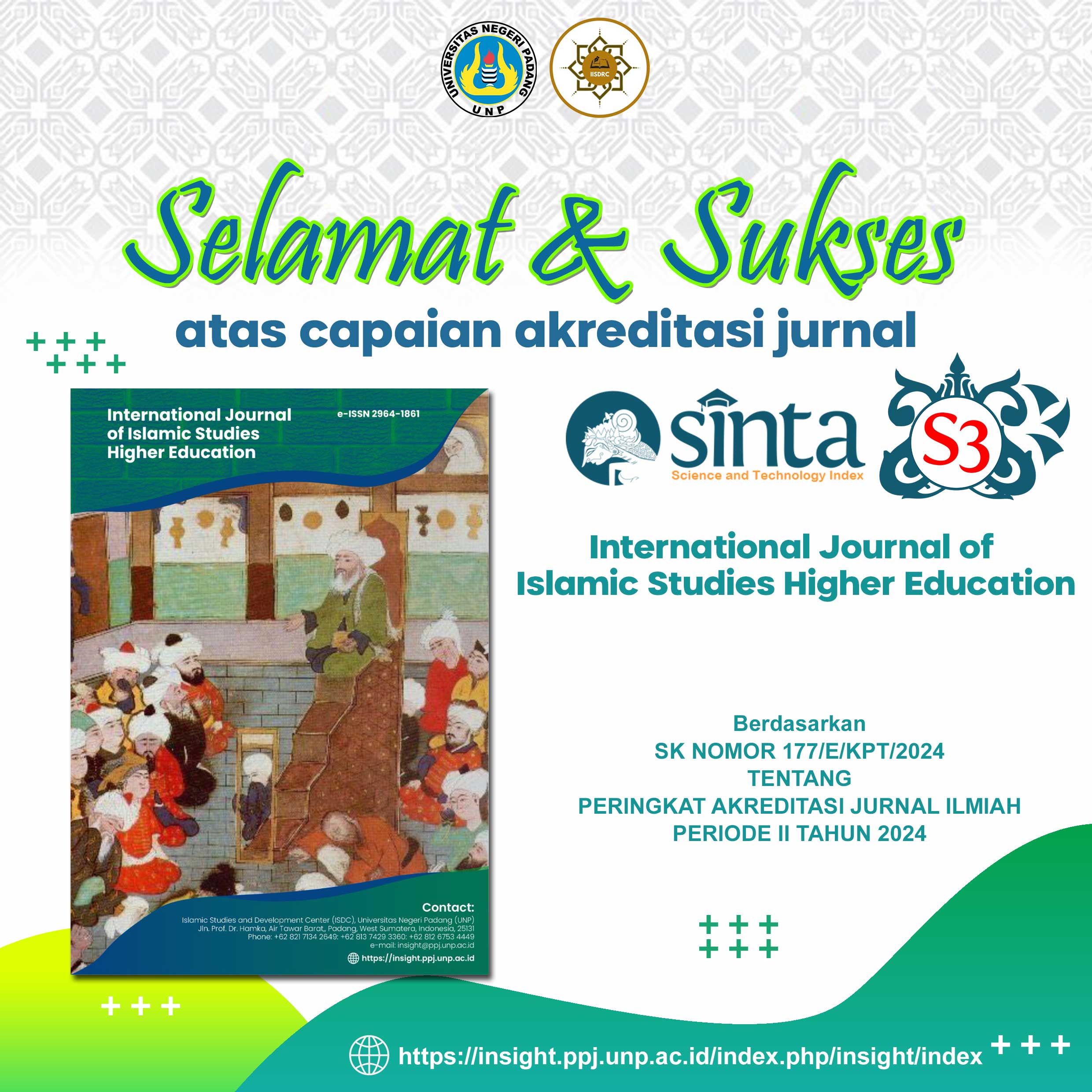Advancing Educational Practice: Implementation of the Contextual Teaching and Learning Model in Islamic Education
DOI:
https://doi.org/10.24036/insight.v3i1.200Keywords:
Adaptive contextual strategy, contextual teaching and learning, Islamic historyAbstract
Islamic history education is a mandatory subject designed to provide students with a comprehensive understanding of Islam. As such, it necessitates a learning model that incorporates innovative, creative, and adaptive teaching styles and approaches to achieve the intended outcomes. This research aims to analyze the impact of contextual teaching and learning on Islamic history education in secondary schools. The study adopts an explanatory mixed-methods design, with the first stage employing a quantitative survey approach and the second stage utilizing a qualitative case study. Quantitative data were collected through a survey consisting of sixty items and analyzed descriptively, while qualitative data were obtained from six informants, including teachers and students, and analyzed thematically using the Miles and Huberman. The findings indicate that the contextual teaching and learning model is highly effective in delivering Islamic cultural history materials through five key steps: i) constructivist material, ii) learning community, iii) modeling, iv) reflection, and v) authentic assessment. These steps serve as a valuable reference for Islamic cultural history teachers in facilitating subject delivery in the classroom.
Downloads
Published
How to Cite
Issue
Section
License
Copyright (c) 2024 Ardi Satrial, Yumna Yumna, Muthi'ah Muthi'ah, Anushka Mardhiah Binti Mohd Nafi, Ibnu Muhammad Yamudin Salaeh

This work is licensed under a Creative Commons Attribution-ShareAlike 4.0 International License.











